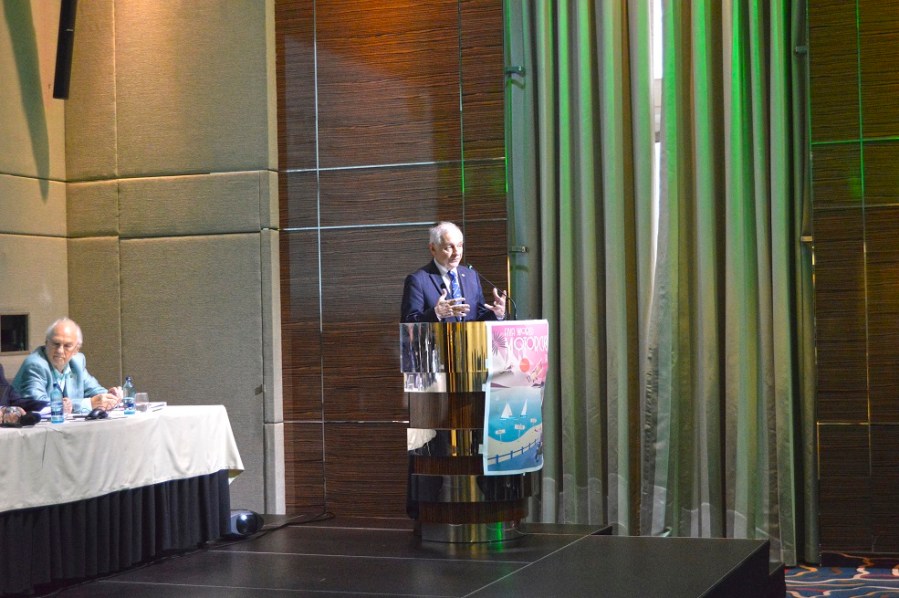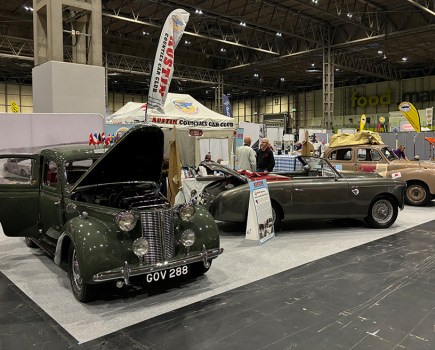Patrick Rollet, the President of FIVA (the Fédération Internationale des Véhicules Anciens or international federation of historic vehicles), has reiterated the need for the historic motoring scene to evolve in order to survive into the future.
Discussing issues that may contribute to the potential demise of motorists at the wheel of their own vehicles, including congestion, pollution and road safety issues, ageing drivers and the threat from autonomous vehicles, Rollet outlined FIVA’s plans to keep us behind the wheel, even 50 years from now.
Expanding on his speech at Retro Classics in Stuttgart, which we covered in our March 20 issue, Rollet believes that clubs need to change their habits to include younger members and younger cars. “Clubs around the world are arguably in the last throes of a golden age, seeing a sad decline in new members because of the lack of younger people,” he said. “Young petrolheads still exist, but all they need to organise a gathering are a few Facebook messages: no road book, rally plates or fuss. Likewise, they use their informal network to find a mechanic or surf the web for parts, so why join a club?
“Too many clubs ignore these profound technological and sociological changes, mismanaging their efforts to attract young people, to welcome them and satisfy their desire for informal, fuss-free events. Many clubs ostracise youngtimers, both vehicles and members.”
Rollet spoke of creating a ‘young’ section in clubs, run by a younger person, and to include several under-40s on the main committee. He also discussed the need for clubs to increase their visibility and appeal to the general public, criticising those who organise hidden outings and talking of the need to show vehicles wherever there is an audience, especially of young people. “We must tell a story, because every historic vehicle has a fascinating tale to tell, of much more interest to the general public than the cubic capacity or number of valves,” he added.
In addition, he warned of being too narrow in the definition of historic motoring. “You might only be interested in vintage Bentleys, but please don’t criticise your neighbour’s passion for mopeds, or microcars, or buses, or customised American muscle cars in fuchsia with turquoise stripes,” he said. “They’re all an important part of our history, our culture, and the rich diversity of classic vehicles on our roads.
“At a recent seminar, Michael Abele, in charge of social networks at Mercedes-Benz Classic, proposed an answer to the authenticity-v-inclusiveness debate. Indicating a 190E with big chrome wheels and low-profile tyres, he suggested, ‘Don’t criticise; respect. Listen… and then educate’. Very wise advice.”
As we reported previously, the move towards embracing younger and modified classics would seem to represent a change in direction for FIVA, whose own literature says it caters for vehicles over 30 years old. Previously it has also been heavily criticised for being hostile to any vehicle that doesn’t confirm to its ideal of exact preservation or restoration. In 2013 all 61 national member organisations of FIVA ratified and enacted the so-called ‘Turin Charter’, further clarified by a 120-page handbook launched in 2017, which states that cars should not be modified more than necessary.
However, the fact that Rollet mentions the need “to educate” owners of modified cars suggests the authenticity-v-inclusiveness debate will rage on, despite a seemingly more open-minded approach.







